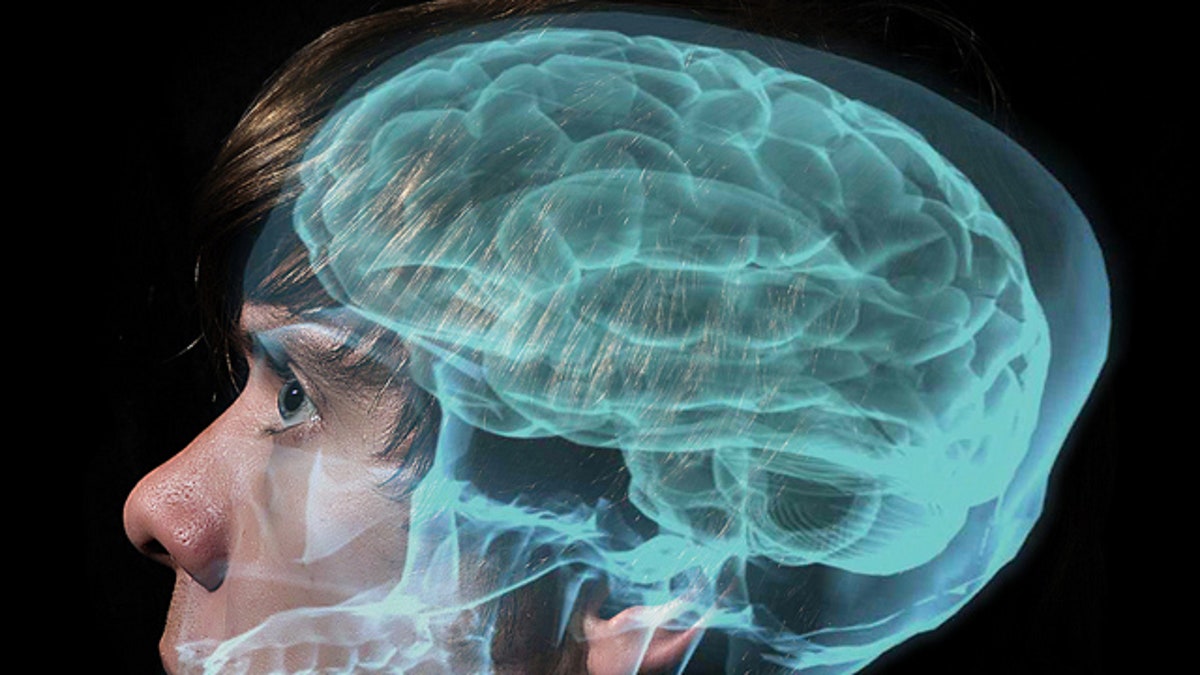
(Flickr/illuminaut)
What if you could build a computer that works just like the human brain?
Scientists have started to imagine the possibilities: We could invent new forms of industrial machinery, create fully autonomous thinking cars, devise new kinds of home appliances. A new project in Europe hopes to create a computer brain just that powerful in the next ten years -- and it’s incredibly well-funded.
There’s just one catch: computers that fast simply haven’t been invented yet.
The Human Brain Project kicks off Oct. 7 at a conference in Switzerland. Over the next 10 years, about 80 science institutions and at least 20 government entities in Europe will figure out how to make that computer brain. The project will cost about $1.6B in U.S. dollars.
The research hinges on creating a super-powerful computer that’s 1,000 times faster than those in use today. If you’re keeping track, that’s an “exascale” supercomputer, one fast enough to model a nuclear explosion or the complex, planetwide forces that shape the climate. Just a few years ago, scientists started using “petascale” supercomputers like Blue Waters at the National Center for Supercomputing Applications (NCSA) in Illinois that went online last year.
'The more we know about our brains, the more we can utilize our brains to its full potential.'
“Well-known manufacturers of supercomputers like IBM, Cray, Intel, and Bull, are committed to building the first exascale machines by approximately 2020. So we are confident we will have the machines we need,” Henry Markram, the director of the Human Brain Project at École Polytechnique Fédérale de Lausanne in Switzerland, told FoxNews.com. Markram also directs the Blue Brain project started in 2005 that hopes to reverse-engineering the human brain by rebuilding the molecules.
For scientists, these sorts of projects are all about understanding ourselves. The brain is the least understood organ in the human body. We don’t really know how the brain controls our thoughts, our bodily functions, or our behavior. And, Markham says the lack of processing power in modern computer is the least of our worries.
He says a computer brain will consume gigawatts of power, require new forms of memory, and force scientists to look at cutting edge storage techniques. But the immense technical hurdles will be worth the effort. The first phases will help us understand how the brain functions. In later phases, we’ll find out how we learn, how we see and hear, and why the brain sometimes doesn’t process information correctly.
Dr. Gayani DeSilva, a psychiatrist with a private practice in Orange, Calif., told FoxNews.com a human brain model could have “unimaginable” implications for medicine, helping us learn how we adapt, heal, and develop. “The more we know about our brains, the more we can utilize our brains to its full potential, intervene when issues arise, replicate in artificial creations the power of the brain’s ability to integrate a vast amount of information that then causes other systems to perform specific actions,” she says.
“The human brain is immensely complex, and a model reduces this complexity into a controlled system. In a model, scientists can test hypotheses as to how the human brain works, and what occurs in disease in order to understand how to treat neurological conditions. It's analogous to astronauts training in a flight simulator prior to a shuttle launch,” added Amina Ann Qutub, a bioengineer at Rice University.
Fortunately, scientists won’t have to wait 10 years for the results. Markram says there will be initial models they can use for medical research with a year. In three years, they will have models that could help us build new kinds of computer chips. (That’s right: the brain project itself will help them build the computer brain.)
As with any cutting edge science, we don’t know yet what we don’t know. Qutub says this is all unmapped territory. “The number of total cells including the neurons, vascular cells, and glia in a human brain is more than the number of stars in the Milky Way,” she said.
That’s enough to give scientists quite the headache.
Editors' Note: An earlier version of this story incorrectly listed the cost of the project. The correct cost is shown above.








































